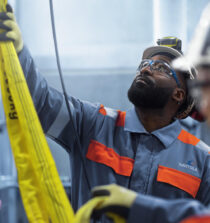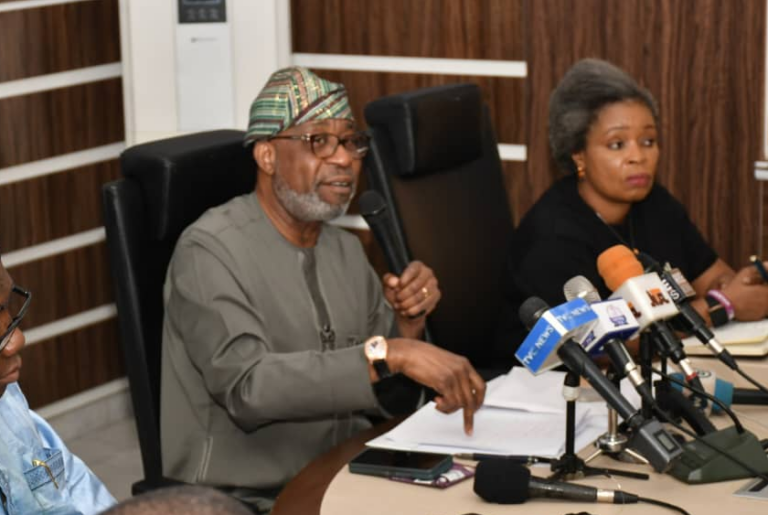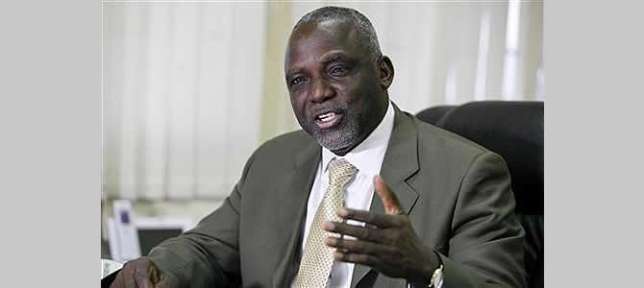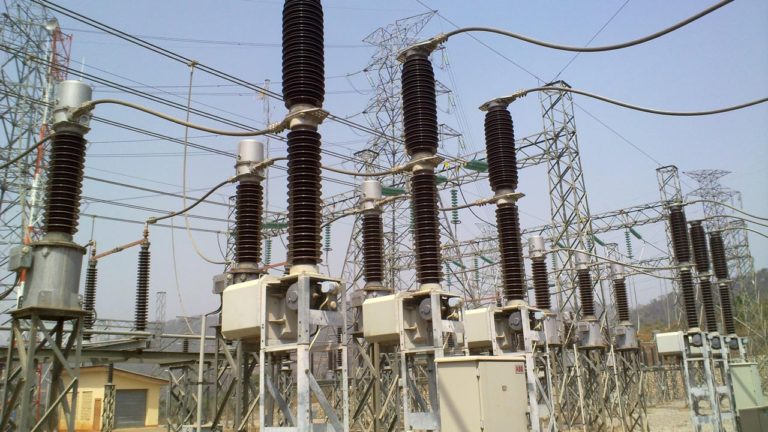The elixir Nigeria needs to continuously grow her economy is electricity, which has impeded the growth of other sectors. Former Minister of Power, Professor Barth Nnaji, in this interview with Adeola Yusuf, expresses frustration over neglect of the power super grid scheme approved by the Federal Executive Council (FEC) six years ago. He also laid bare his feelings about power sector’s privatization, which will clock five years in a few weeks’ time. Excerpts:
About five years into privatization of the power sector, what is your assessment as minister that began the process? Is anything wrong with the structure?
There is nothing wrong with the structure. The things that made us to privatise the generating and distribution strata of the sector, why are they preventing us from privatising the transmission? Now the reason for privatising the generation strata is that the units in the various generation plants were not producing, so, we needed investment by the buyer to recover the entire asset. For example, if it is a power plant with installed capacity of 900 Mega Watt, but it is producing 200 Mega Watt, then you will need huge investments for it to begin to produce the 900 MW and when this is achieved, the country is going to be the beneficiary of that. So, that is where that value chain comes in.
For the distribution then, the challenge is that the distribution network was very weak. And for distribution, the tariff collection at the then Power Holding Company (PHCN) was inefficient, so, if you have average technical collection and commercial losses of sales up to 500 to 600 per cent, then you don’t have a company. So, what we said we could do to correct this was that – let’s privatise the distribution companies under PHCN for us to get them to be credit worthy. This means government needed to invest in the companies to improve the distribution infrastructure, but this was not being done then. So, for the companies to be credit worthy, we set criteria for those who are buying. Those who are buying must have the technical and financial capacity, without those two, we agreed that they should not get the assets.
There is a misconception that the disagreement between Nigeria Electricity Regulatory Commission (NERC) and distribution companies (DISCOS) was over payment. Tell us your view on this?
NERC is not the one that pays, it is only a regulator – the one that is paying is the bulk trader. What NERC does is to set tariffs; now if the tariff is not cost-reflective, that is a problem. For example, the tariff that was here two years ago is still the one that persists; meanwhile the currency is up in value by about 50 per cent already. So, there are needs for adjustments and people need to be able to get the power. What this means is that the entire value chain needs to be worked on and that is really the problem. Now, the disagreement is about the tariff. Tariff is supposed to be amended every year; it could go down or up depending on the country’s currency.
There are lot of misconceptions about captive power and embedded power. Kindly shed light on this?
I think we need not to mix captive power with embedded power, it is very important that we understand this. Captive power is, for example, power that is built for a purpose – like the one built for a cement factory, which is intended to serve that factory alone without the interference from any DISCO, whereas embedded power is the one you installed in a distribution company – serving only that distribution company or a ring -fenced area – like the one in Aba – that is embedded power.
For these resources, it’s not government that is building them, its private sector that should build them. But the role of government is to make policies that ensure they do actually get that the entire value chain paid for – if it is gas fired – the gas is paid for; that the power produced by producers get paid for; that the transmission is paid for and the distribution is getting the money. But who is the one responsible for ensuring that the entire value chain is working? The distribution company, so if distribution company is collecting money from consumers, it will collect money efficiently, then they can pay transmission and generation then generation can pay for gas, so with that, the value chain will be okay.
When we were there what we tried to do was to ensure that distribution companies paid generations and they began to pay 100 per cent. Many of the distribution companies were now paying for 100 per cent of power they took. The generation companies had no excuse what so ever of not paying the gas companies, I sat with the then minister of petroleum and we worked out the price for gas and would pay. It was imperative on us to make sure the price for gas was paid – then things would work, but if there were no enforcement, things would not work. The enforcement we talked about was in different areas. For example, distribution companies signed on performance agreement to deliver, government signed also to continue to give them proper tariff, this means performance on both sides.
Can you tell us about the Aba project of your company?
The Aba project is gradually coming on; hopefully before the end of the year, we should have some positive news about it.
Again, let me reiterate it concerning the privatisation that there were criteria set out for the scheme – technical capacity and financial capacity. If those two criteria were not there to those whom power plants or distribution infrastructures were sold, then there can’t be progress.
The national grid has been described as the weakest link between the generation and distribution. To get the country out of this mess, you had once secured FEC’s approval for super grid. What is your take on the neglect of this scheme?
We took the proposal of super grid to the Federal Executive Council (FEC) and it was approved by the government of this country to build super grid. This, it is pertinent to note, wasn’t really going to be built by government – it was going to be a public private partnership (PPP). One is for government to find competent private sector companies to build the super grid in segments so that the entire segment is done. That was the whole plan and it would provide fundamental relieve in transmission. Countries just don’t have one network, they typically have more. There are some countries that have 200 kv lines just to ensure that huge power plants, like Mambila, which is 3000 megawatt, has to transmit its power. We are not going to use the kind of grid we have now to do the collage, we need a proper grid and we need to plan these things in advance and to rigorously follow through. Imagine if we have started doing it from six years ago, we would have really advanced in it. We even had an idea that if we had issues, there was a power plant that was at the planning stage in Congo – a 40,000-megawatt power plant on grid. We could build a thousand kilometer line from there to Nigeria with the same super grid and it would come to Calabar and then distribute in Nigeria, using our super grid. There are all kinds of things and when we talk about collaboration on power in the whole of Africa, these things are possible. Also, you can generate locally and sell excess power to other countries.
What motivated you to go into geometric power project despite the huge financial outlay?
Like I said, I do not get deterred when I know that something can be done. When I know that something is possible and it would help solve a problem in the society, I will keep going at it until I see people who believe in the dream and support me.
In terms of geometric power, it started when I came here to serve as minister in the 90s during the Ernest Shonekan-led interim government. During that time, I found that the impediment to industrialisation was power. When I went back to America, I told myself that one day I would come back to help address the problem and that came in year 2000 when the company I had formed for power bided to guarantee 15 megawatts of power in Abuja, but we had to build 22 megawatts to guarantee it. The interesting thing was that the power was supplied to the central area of Abuja and the power was regular for the period we handled it and that was because the power was domiciled locally, it was not put in the national grid.
That taught me something and at that time, Aba people were coming because they had heard about what we did in Abuja. At that time, Ngozi Okonjo Iweala was going to Aba with the president of the World Bank and they invited me to join them. They went to Ariaria market and asked the people what they needed to increase their productivity; they said if they got reliable electricity, they could triple their productivity. That was when Ngozi and the World Bank people turned to me and told me that the ball was in my court. That was how the journey started.
So, we made sure that this project is designed in a way that there is absolute reliability. The project was designed on that basis.
What is the update on the support you got from the World Bank for this project?
We are the first independent power project in Nigeria, in the real sense of it; the World Bank supported us with an initial grant to do a feasibility study. They later put equity investment in our company, but they backed off when the Nigerian government sacked the regulatory commission. That put us in a very awkward situation. It was not our fault; it was the fault of the Federal Government.
They said that when you sack the commissioners, it was no longer a functional commission, so they backed off and that affected everything. To worsen matters, the financial meltdown came around the same time to compound our problem,
What was the initial agreement between your firm and the Federal Government on this project?
The agreement had two tranches. First was the right of concession, which means that we have Aba for 20 years from the time we inject power and start to give it out. It is an exclusive lease of the network, nobody else comes there. We have nine local governments under our cover.
The second is that if there was privatisation, we would have the first right to purchase the area and that was the right that was denied us during privatisation.








